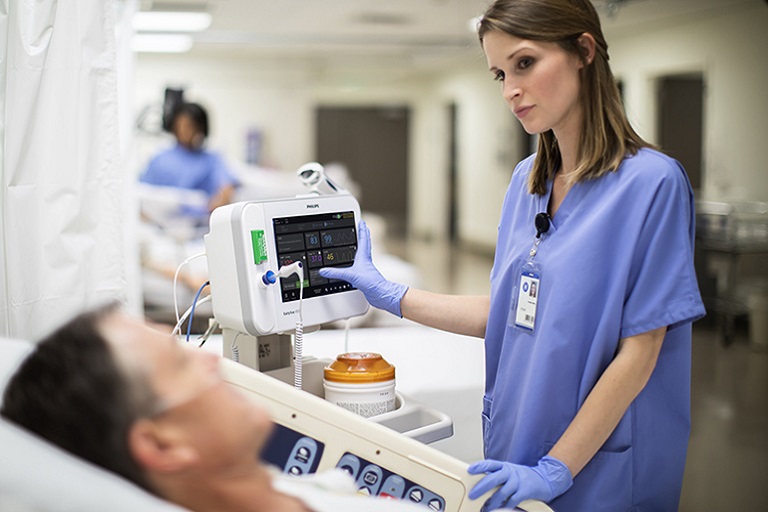Philips announced it has received an FDA clearance and CE mark to help monitor COVID-19 patients in the hospital through a wireless, wearable biosensor designed to detect early patient deterioration.
WHY IT MATTERS
The first install of the Philips Biosensor BX100 will occur at OLVG, a clinical, referral and training hospital in the Netherlands, where it will help limit exposure to staff, improve patient safety and preserve personal protective equipment. The BX100 is a 5-day, single-use wearable patch, designed to be integrated alongside a scalable hub to monitor multiple patients across multiple rooms, and also can be incorporated into existing clinical workflows for mobile viewing and notifications. Patient-worn monitoring devices like the BX100 also give patients the freedom to move around the care unit or the hospital, using wireless technology to transmit data and alarms where they’re needed and featuring a range of measurement capabilities.
The BX100 collects, stores, measures and transmits respiratory rate and heart rate every minute, adhering to the chest of patients. The device requires no cleaning or charging. The monitor, which weighs about a third of an ounce, is shock- and vibration-resistant. (It can survive a three-foot fall.) It offers water-ingress protection, and comes equipped with 1 MB of nonvolatile flash memory. The device is the latest in a series of offerings from Philips focused on deterioration detection, and comprises Philips’ IntelliVue GuardianSoftware, a data-driven intelligent analytics platform for early-warning scoring, and advanced patient monitors like the company’s EarlyVue VS30.
THE LARGER TREND
In the context of the present pandemic, connected health and remote patient-monitoring solutions are being viewed as critical healthcare tools that enable physicians to monitor patients without having to come into contact with them, thus preventing the spread of the virus. Biofourmis, for example, offers an RPM and AI-based analytics technology called Biovitals, which provides personalized predictive care by leveraging data collected from patient wearables that monitor more than 20 physiological parameters and patient-captured data from a mobile app. Yale New Haven Health recently deployed remote monitoring technology for ventilator patients, helping its respiratory therapists by combining tele-ICU, EHR and RPM technologies.






















